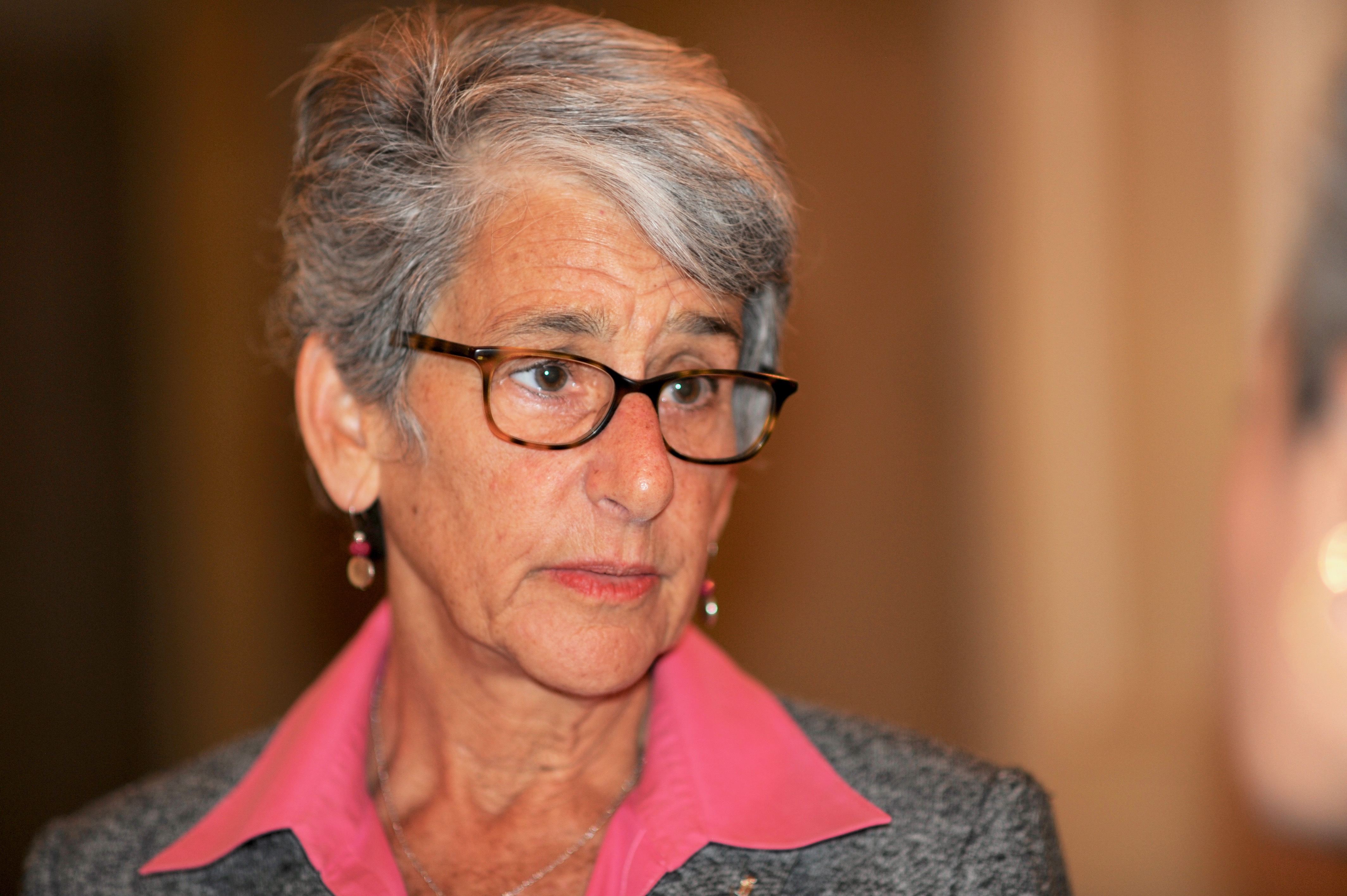
Sen. Connie M. Leyva. (Photo: Kevin Sanders for California Globe)
Birth Control Access Expansion Bill Passed By Senate 32-5
SB 523 pushes for more protections, increased access of contraceptives in California
By Evan Symon, June 2, 2021 11:09 am
A bill that would expand access to birth control in California was passed in the Senate on Tuesday.
Senate Bill 523, authored by Senator Connie Leyva (D-Chino), would expand birth control access through multiple avenues, ranging from the ability to afford health insurance to school-based birth control options. Under SB 523, health care service plans and health insurance policies would need to provide provide point-of-sale coverage for over-the-counter FDA-approved contraceptive drugs, devices, and products at in-network pharmacies without cost-sharing or medical management restrictions. For those plans or policies offered by private or public colleges and universities that directly provide health care services only to its students, faculty, staff, administration, and their respective dependents, the new contraceptive coverage requirements would need to be met. Coverage for clinical services around the usage of contraceptives would also need to be met.
Insurance companies would also be barred from imposing a deductible, coinsurance, copayment, or any other cost-sharing requirement on vasectomies.
This bill, known as the Contraceptive Equity Act of 2021, would also prohibit the Board of Public Relations of the Public Employees’ Retirement System, the California State University, and the University of California from approving or renewing a health benefit plan that does not comply with the new contraceptive coverage requirements. In addition, the bill would stop employers from not hiring, firing or discriminating against individuals based on their reproductive health decision making. However, SB 523 would also ease the individuals ability to fight back against the discrimination leveraged against them.
Senator Leyva wrote the bill largely to expand, modernize, and protect birth control access in California by improving access for all genders and races, making more options available to those with or without insurance, reducing workforce discrimination, and adding more options for those in higher education capacities. Leyva also specifically noted that California has passed little in contraceptive measures since several bills were passed in the mid-2010’s, including 2014’s SB 1053 and 2016’s SB 999, bills that respectively required Medi-Cal health plans to stop added costs like co-pays on contraceptives and ensuring health plans would cover a year’s supply of birth control all at once.
“SB 523 strengthens the ability of Californians to receive timely access to birth control, as well as reduces barriers to contraceptive care by creating greater health equity across the state,” said Senator Leyva in a statement on Tuesday. “By making California’s contraceptive laws and benefits more equitable, I am confident that we will be able to reduce the ongoing health disparities in reproductive health outcomes for people of color, low-income Californians and young adults. I appreciate working alongside our bill sponsors and so many other wonderful organizations and people that continue to prioritize reproductive health care for all Californians.”
Support for, opposition to SB 523
While supported by many other lawmakers and organizations such as Essential Access Health, NARAL Pro-Choice California, and the National Health Law Program, SB 523 has also seen a small but notable Republican opposition against the bill.
“It’s safe to say that no one was fooled by this bill,” explained Antonia Cortez, an analyst who monitors contraceptive expansion laws across the United States and Mexico, to the Globe on Wednesday. “It’s really a hodgepodge of different birth control changes that we would normally see in individual bills. But because of the unusualness of the last few years due to the pandemic, all the different regulations and changes and protections were all put under a bill under the banner of contraceptive equality.
“But the naming didn’t fool anyone. They all voted based on their beliefs and where they stand.”
SB 523 passed 32-5, with 3 not voting, on Tuesday. Voting was partisan, much like previous Committee votes earlier this year. All nay votes and non-voters were Republican while all yea voters were Democrat.
SB 523 is expected to be heard in Assembly Committees starting later this month.
- Bill to Require Law Enforcement Disclosure if AI Was Used To Help Write Reports - August 7, 2025
- Gov. Newsom Files FOIA Request To ‘Expose True Cost’ Of L.A. Federal Troop Deployment for Anti-ICE Riots - August 6, 2025
- California Redistricting: How Newsom’s Plan Will Demolish Hard Fought GOP Gains - August 6, 2025





FREE PERMANENT STERILIZATION FOR ALL on public assistance, all illegals, and all POCs, upon request (but no reversals).
Now that’s a plan I wouldn’t mind putting my White privilege tax dollars behind.
Leyva needs to come out of the closet instead of acting as a representative for the people. She can start by wearing a Planned Parenthood t-shirt to all of the committee meetings. All of the doors of these bought and paid for “representatives” are plastered with PP signs.
Leyva needs to come out of the closet instead of acting as a representative for the people. She can start by wearing a Planned Parenthood t-shirt to all of the committee meetings. All of the doors of these bought and paid for “representatives” are plastered with PP signs.
Cheap, but not free. People don’t value things that are free. LARCs are the best for women living in somewhat rapey cultures. But they, and most other contraceptives other than condoms, provide no protection against STDs.